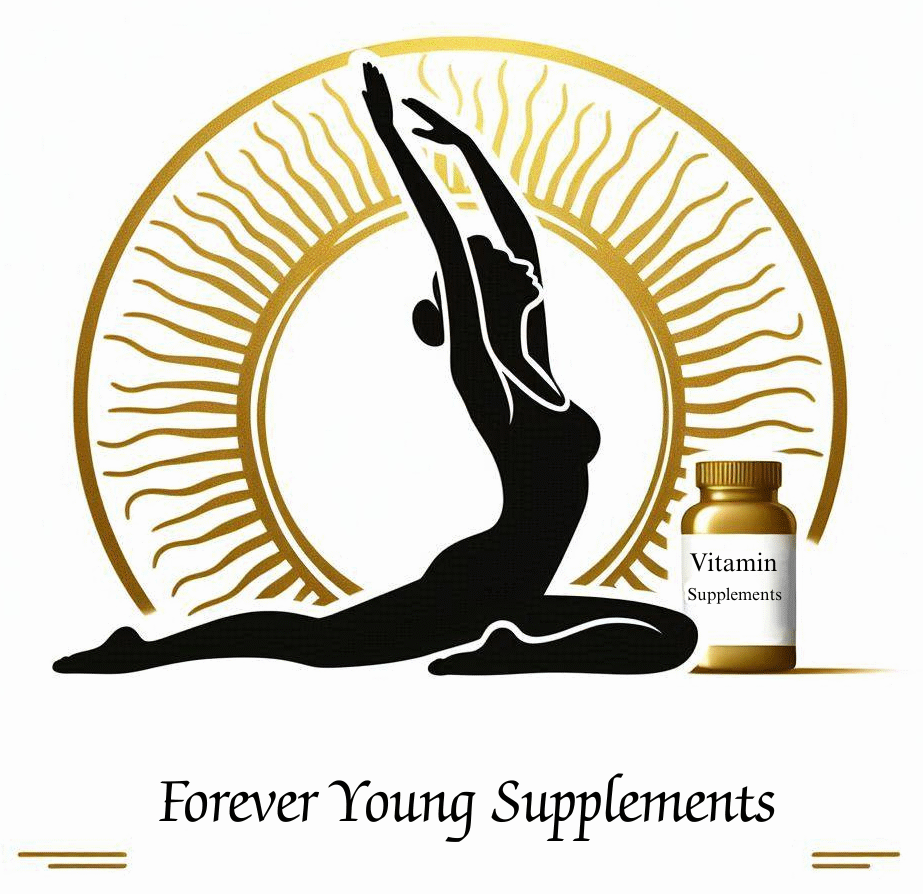Introduction
As our population ages, the quest isn’t simply to live longer but to live better: to maintain strength, cognition, independence and quality of life well into our later years. For older adults, nutritional strategies are increasingly recognized as a core component of this “healthy ageing” paradigm. Yet supplement use in later life often remains guided by tradition or marketing rather than by the latest science. In this article I review recent high-quality research that is helping to clarify which nutritional interventions show real promise for older adults, what the underlying mechanisms appear to be, and how this might shape intelligent supplement choices.

I focus on three major research streams: cellular ageing and key nutrients; dietary patterns and longevity biomarkers; and targeted supplementation for muscle, cognition and inflammation. I then summarise practical take aways for seniors and highlight key limitations and future directions.
The Current Landscape of Supplement Use in Older Adults
Before diving into the science, it is worth acknowledging the setting: many older adults already take vitamins, minerals or herbal supplements, sometimes in combination with multiple medications, often without sufficient consideration of absorption changes, nutrient interactions, or whether the supplements have been tested in a senior population. Ageing brings changes in digestive efficiency, body composition, kidney/liver function, and immune status. These may all influence how nutrients are metabolised and how supplements perform. Thus, an evidence based approach becomes especially important. The bottom line: supplements are adjuncts, not magic pills. They must be interpreted in the context of overall diet, lifestyle, and individual health status.
Major Research Streams and Findings
Vitamin D & Cellular/Biological Ageing
One of the most compelling recent findings comes from the large randomised controlled trial known as the VITamin D and OmegA‑3 TriaL (VITAL), which enrolled men aged 50 + and women aged 55 + and randomised them to take daily 2,000 IU of vitamin D₃ (and/or omega 3 fatty acids) or placebo.
In a substudy of over 1,000 participants whose leukocyte telomere length (LTL) was measured at baseline, year 2 and year 4, those receiving the vitamin D supplement showed significantly less telomere shortening over four years: about 140 base pairs fewer lost compared with placebo.
Since leukocyte telomeres shorten at the rate of roughly 25-30 base pairs per year in older adults, this reduction corresponds to an approximate “three-year advantage” in cellular ageing.
What does this mean for seniors? Telomeres are protective DNA caps at the end of chromosomes; shorter telomeres are associated with increased genomic instability, higher risk of chronic diseases (e.g., cardiovascular disease, cancer) and mortality. Slowing telomere shortening suggests a potential way to attenuate the biological ageing process.
However:
- This is not the same as reversing ageing or guaranteeing extended lifespan—just slowing one biomarker of cellular age.
- The benefit was shown at 2,000 IU/day over four years in older adults with careful monitoring; individual status (vitamin D baseline, absorption, comorbidities) will matter.
- The trial did not show the same benefit for omega-3 fatty acids in this domain of telomere attrition.
In practical terms: ensuring sufficient vitamin D status (through safe sun exposure, diet, and where indicated supplementation) remains a high-priority for older adults, not just for bone and immune health, but potentially for longer-term cellular resilience.

Dietary Patterns and Longevity Biomarkers
Supplements alone seldom replace a strong dietary foundation. Recent large-scale observational work has reinforced the importance of whole diet patterns for healthy ageing. A landmark study published in Nature Medicine in 2025 found that adults with higher adherence to diets rich in plant-based foods, with moderate healthy animal based foods, had significantly greater odds of reaching age 75 with preserved physical, cognitive and mental health (i.e., “healthy ageing”).
Specifically, the study found that the highest quintile of adherence to the Alternative Healthy Eating Index (AHEI) pattern had a 2.24 fold higher likelihood of healthy ageing compared to the lowest quintile.
Key dietary features associated with healthy ageing included:
- High intake of fruits, vegetables, whole grains, legumes, nuts, unsaturated fats.
- Low intake of processed meats, sugary beverages, sodium and ultra-processed foods.
For older adults this underscores three points:
- Supplements are supportive, but cannot substitute for the nutrient rich matrix of real foods.
- Many nutrients and compounds work synergistically in whole food form (phytonutrients, fibre, minerals, etc).
- Designing a diet emphasising plant rich foods, whole grains, healthy fats and limiting processed/ultra-processed foods remains one of the smartest “investments” into healthspan.
This means promoting diet + lifestyle first, then supplements as targeted support.
Emerging Supplements: Focus on Muscle, Cognition & Inflammation
Beyond vitamin D and diet, researchers are exploring how specific supplements might support areas of ageing especially relevant to seniors: muscle mass/strength (sarcopenia), cognition/brain health, and chronic low-grade inflammation (“inflamm-aging”).
Muscle & cognition: For example, a recent systematic review has found that supplementation with creatine may produce small but meaningful improvements in muscle strength and cognitive performance in older adults engaging in resistance training (though results are still mixed and context-dependent).
Inflammation / plant-derived compounds: Trials of flavanol-rich cocoa extracts or other polyphenol supplements in older populations have shown reductions in inflammatory markers (such as CRP, IL-6) and improved endothelial function, which may be relevant for age related decline.
While large scale Randomised Controlled Trials (RCTs) solely in strictly older adult populations are still relatively few, these lines of research suggest that targeted supplementation, when combined with exercise and diet, may add measurable value.
Key Take Away Messages for Seniors and Supplement Strategy
Drawing together the evidence, here are practical, science informed take-aways for older adults considering supplements within their broader health strategy:
- Diet comes first: For healthy ageing the strongest signals come from dietary patterns rich in whole plant-based foods, legumes, nuts, whole grains, healthy fats, and minimal ultra-processed foods.
- Supplement where gaps or increased needs exist:
- Ensure adequate vitamin D status—there is now RCT evidence that vitamin D₃ (2,000 IU/day) can slow telomere attrition in older adults
(≈ 3 years’ cellular ageing advantage). - Consider other nutrients (e.g., creatine for muscle, flavanols for inflammation) when you have risk factors (muscle‐loss, cognition concerns), but note the evidence is still emerging and context matters.
- Ensure adequate vitamin D status—there is now RCT evidence that vitamin D₃ (2,000 IU/day) can slow telomere attrition in older adults
- Look for high-quality evidence: For any supplement consider:
- Has it been tested in older adults (not just young, healthy volunteers)?
- Are the endpoints meaningful (disease incidence, functional outcomes) rather than just biomarkers?
- Is the supplement safe in older adults (considering medications, kidney/liver function, absorption)?
- Is the product third-party tested for quality/purity?
- Individualise and monitor: Older adults vary widely in health status, absorption, medications, kidney and liver function, and baseline nutrient status.
- Have baseline tests (e.g., vitamin D, B12, homocysteine, etc) where applicable.
- Use supplementation as part of an overall plan including resistance training (for muscle), cognitive stimulation, sleep, social connection and diet.
- Re-evaluate annually—nutrient needs may shift; over-supplementation can carry risks.
- Remember limitations: Supplements are not “magic bullets.” Even the best RCTs (e.g., vitamin D/telomere trial) show modest effects in the context of many other factors influencing ageing (genetics, lifestyle, environment, comorbidities). For example, the telomere benefit was ~140 base pairs over four years—not a reversal of ageing, but a slowing of one process.
Also: observational diet studies show associations, not definitive proof of causation.
Limitations of Current Research and Future Directions
It is worth reflecting on what we don’t yet know (or know fully) and where research is heading, especially for the senior segment:
- Many trials in older adults remain short term or focussed on biomarkers rather than “hard” outcomes (e.g., incident dementia, severe frailty, mortality).
- Older adults are heterogeneous: health status, polypharmacy, absorption changes, and comorbidities all complicate generalising results.
- Supplements vary widely in formulation, dosage, purity/quality, making it harder to translate “study supplement” to “market product”.
- Interactions remain under‐explored: how does supplement use combine with medication, kidney/liver impairment, malabsorption?
- Future research directions:
- Large RCTs of combined lifestyle + supplement interventions in older adults.
- Precision nutrition: tailoring supplementation to individual ageing biology (e.g., epigenetic clocks, telomere biology, biomarkers).
- Longitudinal follow‐up into “late-life” (70+) populations to assess functional outcomes (mobility, cognition, independence).
- Cost-effectiveness and safety in real world older adult populations.
Conclusion
Ageing well is a multi-factorial challenge—nutrition, exercise, sleep, social connection, genetics, environment and supplements all play their part. What the latest research is showing is that while there is no single “anti-ageing pill”, we are increasingly able to identify which nutrients and dietary patterns show meaningful promise for older adults. In particular:
- Adequate vitamin D₃ supplementation appears to slow a cellular marker of ageing (telomere attrition).
- Whole diet patterns rich in plant-based foods correlate strongly with better odds of functioning well into older age.
- Targeted supplementation for muscle, cognition and inflammation may add value when combined with diet and lifestyle.
For seniors, the practical strategy is: build the foundation (diet + exercise + sleep + social support), then add supplements where evidence supports them and personal gaps exist. Always consult with a healthcare professional before starting any new supplement, especially in the context of medications or chronic conditions.
I hope this review helps you to interpret the newest scientific findings with confidence, and to ask the right questions when choosing supplements. Check back here in our Resources section for future posts as more research in ageing, nutrition and supplementation continues to evolve.
References and Further Reading
Zhu H., Manson J., Cook N. et al. “Vitamin D₃ and marine ω-3 fatty acids supplementation and leukocyte telomere length: 4‐year findings from VITAL.” Am J Clin Nutr. 2025.
Tessier AJ, et al. “Optimal dietary patterns for healthy ageing.” Nature Medicine. 2025.
Guasch-Ferré M, et al. “Healthy eating in midlife linked to overall healthy ageing.” Harvard T.H. Chan School of Public Health. 2025.
Vinci G. “Main dietary patterns for healthy aging and well-being.” PMC. 2025.
“Vitamin D supplements may slow biological aging.” Harvard Gazette. 2025.

